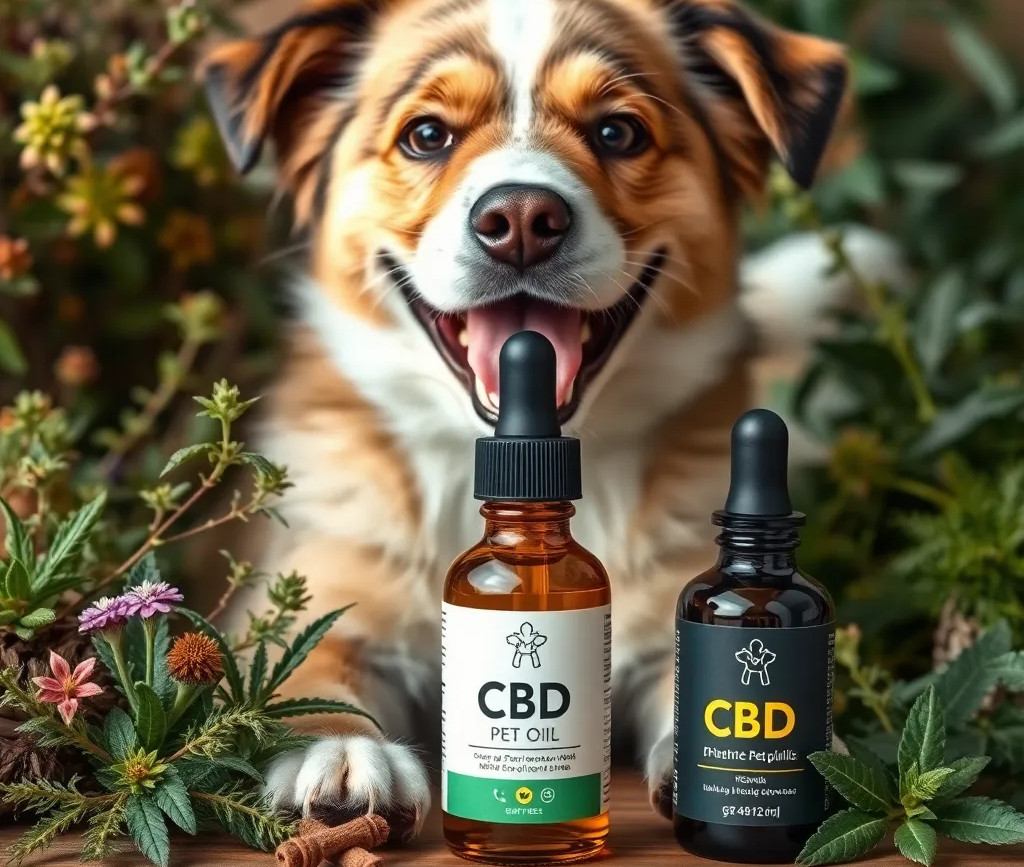As pet owners, we always strive to provide the best care for our furry companions, seeking effective and safe solutions for their health issues. While traditional veterinary treatments are essential, many pet owners are turning to natural remedies to complement their pets' health regimes. One such natural remedy gaining popularity is cannabidiol (CBD), a compound derived from hemp that interacts with the endocannabinoid system (ECS) in both humans and animals. In this post, we will explore common pet health issues such as allergies, digestive problems, and skin conditions, and how CBD can be integrated into a holistic approach to treatment.
Understanding the Endocannabinoid System (ECS)
The endocannabinoid system is a complex network of receptors, endocannabinoids, and enzymes that play a crucial role in regulating various physiological processes in the body, including mood, pain sensation, immune function, and inflammation. Both humans and pets have an ECS, which means that CBD can potentially influence these systems in animals, promoting balance and overall health.
Common Pet Ailments and How CBD Can Help
- Allergies
- Symptoms: Pets suffering from allergies may experience itching, sneezing, skin irritations, and gastrointestinal upset.
- CBD's Role: CBD has anti-inflammatory properties that can help alleviate allergic reactions by reducing inflammation and itching. By interacting with the ECS, CBD may also help modulate the immune response, potentially decreasing the severity of allergic reactions.
- Natural Approach: In addition to CBD, consider incorporating omega-3 fatty acids into your pet’s diet, as they can help reduce inflammation and support skin health.
- Digestive Problems
- Symptoms: Common digestive issues in pets include vomiting, diarrhea, and loss of appetite.
- CBD's Role: Research suggests that CBD can help regulate gastrointestinal function by reducing nausea and promoting appetite. It may also help soothe the stomach lining and reduce inflammation in the gut.
- Natural Approach: Alongside CBD, consider probiotics and a high-quality diet rich in fiber to support digestive health. Always consult your veterinarian before making dietary changes.
- Skin Conditions
- Symptoms: Pets with skin conditions may exhibit redness, itching, flakiness, or hot spots.
- CBD's Role: Topical CBD products can be applied directly to affected areas to reduce inflammation, soothe irritation, and promote healing. CBD may also help alleviate itching, providing relief for pets suffering from skin allergies or infections.
- Natural Approach: Incorporate supplements like fish oil for additional anti-inflammatory benefits and consider regular grooming to keep your pet’s skin healthy and free from irritants.
- Joint Pain and Arthritis
- Symptoms: Pets with joint issues may show signs of limping, stiffness, or reluctance to engage in physical activity.
- CBD's Role: CBD has been shown to have analgesic (pain-relieving) and anti-inflammatory effects, making it a potential option for managing pain associated with arthritis or joint injuries. Studies have indicated that CBD can improve mobility and reduce discomfort in dogs suffering from osteoarthritis.
- Natural Approach: Combine CBD with joint supplements like glucosamine and chondroitin to support joint health and mobility.
- Anxiety and Stress
- Symptoms: Pets may exhibit anxiety through excessive barking, destructive behavior, or hiding.
- CBD's Role: CBD has been shown to help reduce anxiety in pets, promoting a sense of calm during stressful situations such as thunderstorms, fireworks, or separation anxiety. By interacting with the ECS, CBD can help regulate mood and emotional responses.
- Natural Approach: Along with CBD, consider creating a calming environment with pheromone diffusers or anxiety wraps, and ensure your pet has plenty of physical and mental stimulation.
Integrating CBD into Your Pet’s Health Regimen
- Consult Your Veterinarian: Before introducing CBD or any new supplement into your pet’s routine, it’s essential to consult with a veterinarian who understands cannabinoid therapies. They can help determine the appropriate dosage and product for your pet’s specific needs.
- Choose Quality Products: Look for high-quality, pet-specific CBD products that have been third-party tested for purity and potency. This ensures that you are giving your pet a safe and effective product.
- Monitor Your Pet’s Response: Start with a low dose of CBD and observe your pet’s reaction. Every pet is different, and finding the right dosage may take some time. Keep track of any changes in symptoms or behavior.
- Combine with Other Natural Remedies: CBD can be part of a holistic approach to your pet’s health. Consider incorporating other natural remedies, such as dietary changes, supplements, and lifestyle modifications, to support your pet’s overall well-being.
Conclusion
Natural remedies, including CBD, can play a significant role in managing common pet ailments. By understanding the endocannabinoid system and how CBD interacts with it, pet owners can make informed decisions about their pets' health. While CBD shows promise for conditions like allergies, digestive issues, skin problems, joint pain, and anxiety, it is essential to approach its use thoughtfully. Always consult with a veterinarian to ensure the best care for your furry friends, and consider integrating CBD with other natural remedies for a comprehensive health strategy.
















